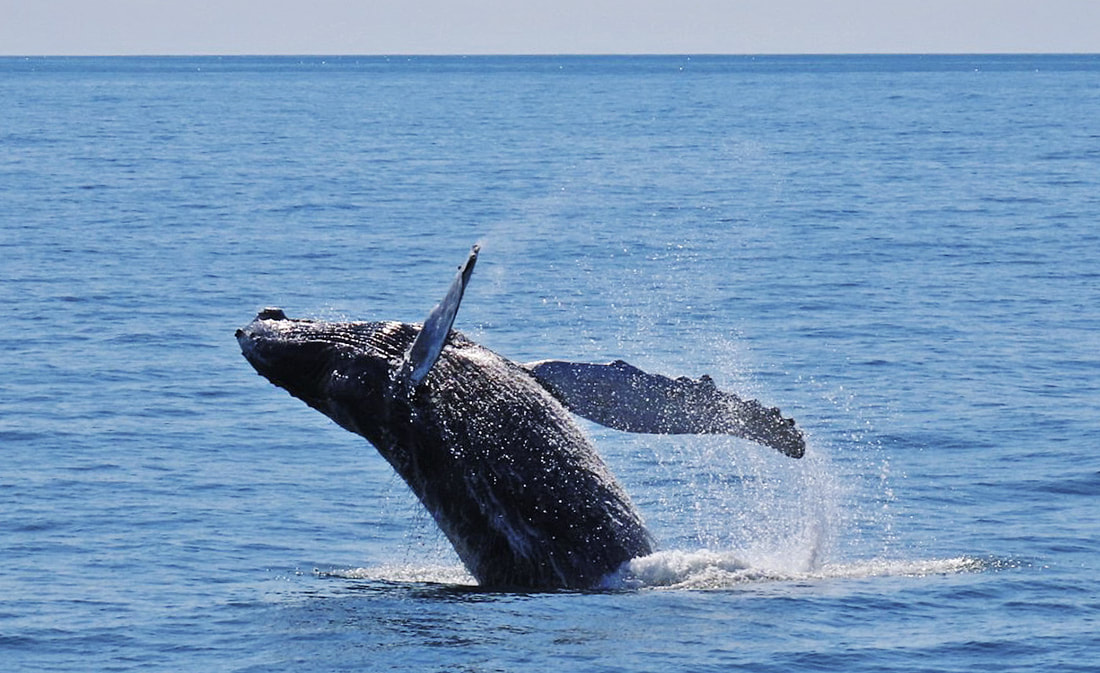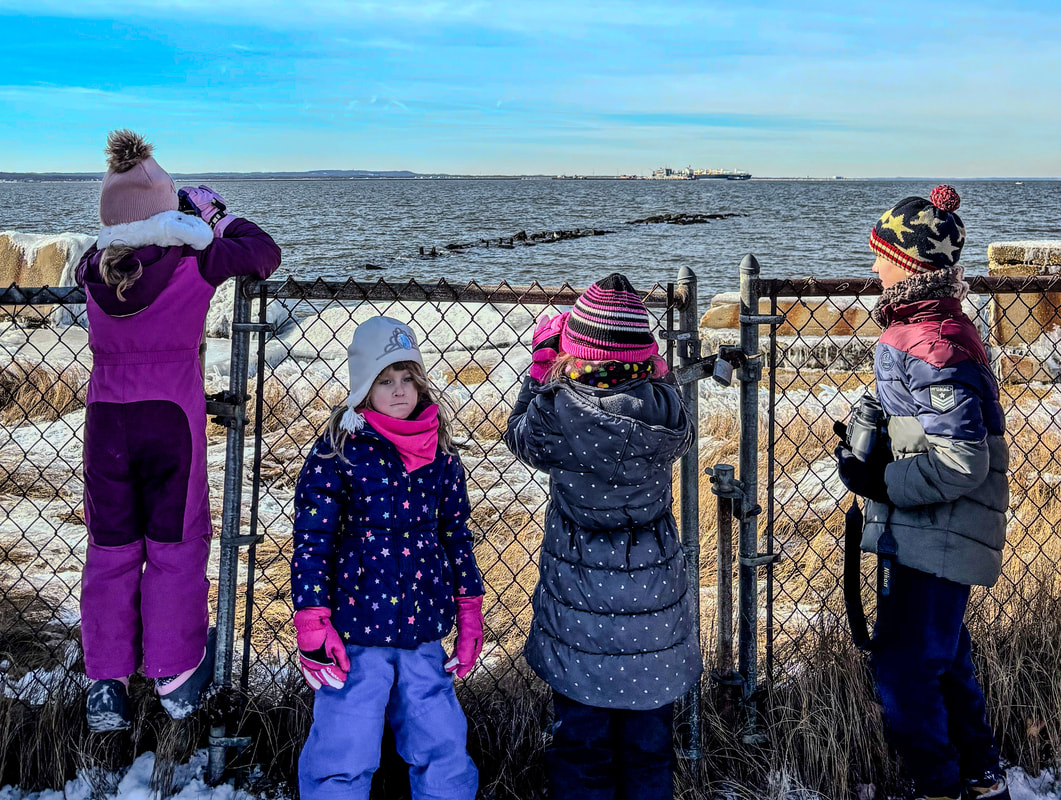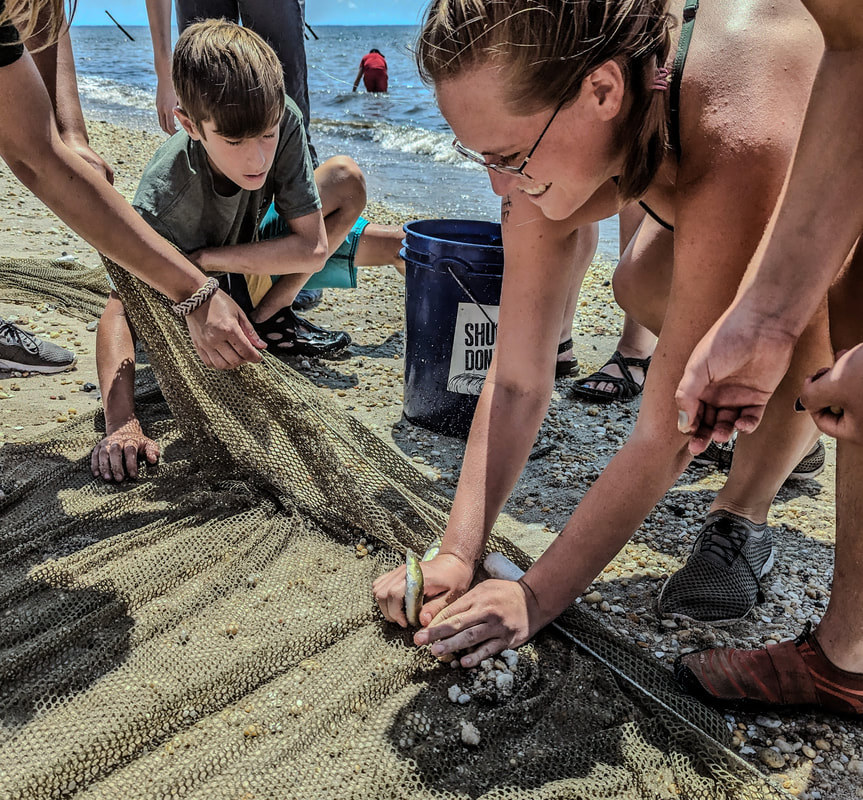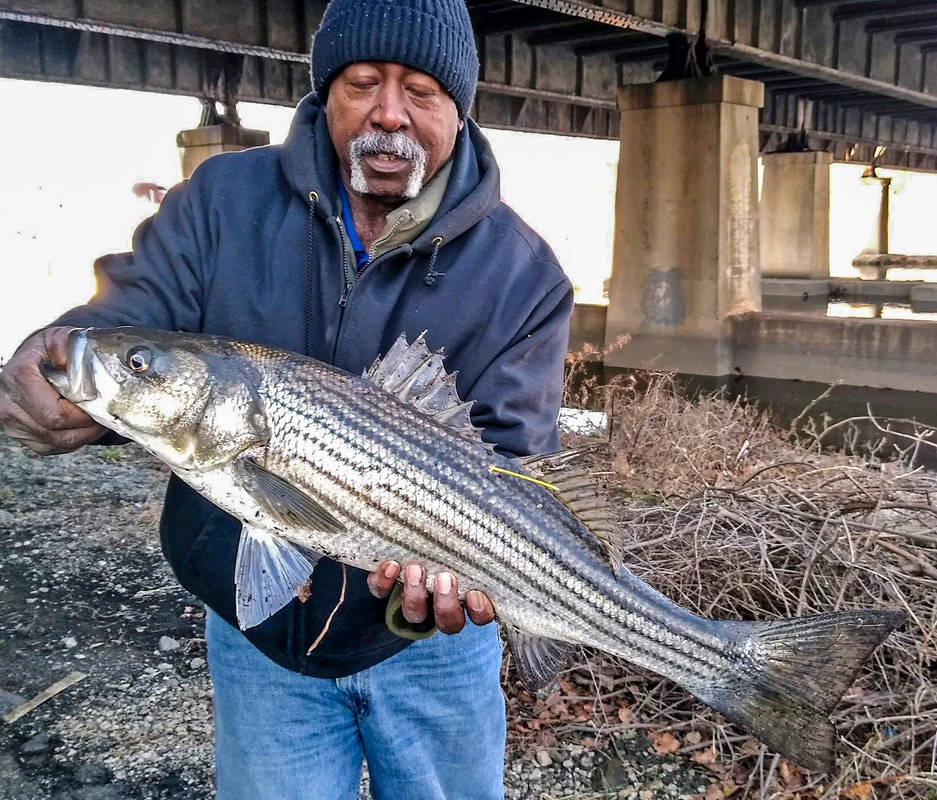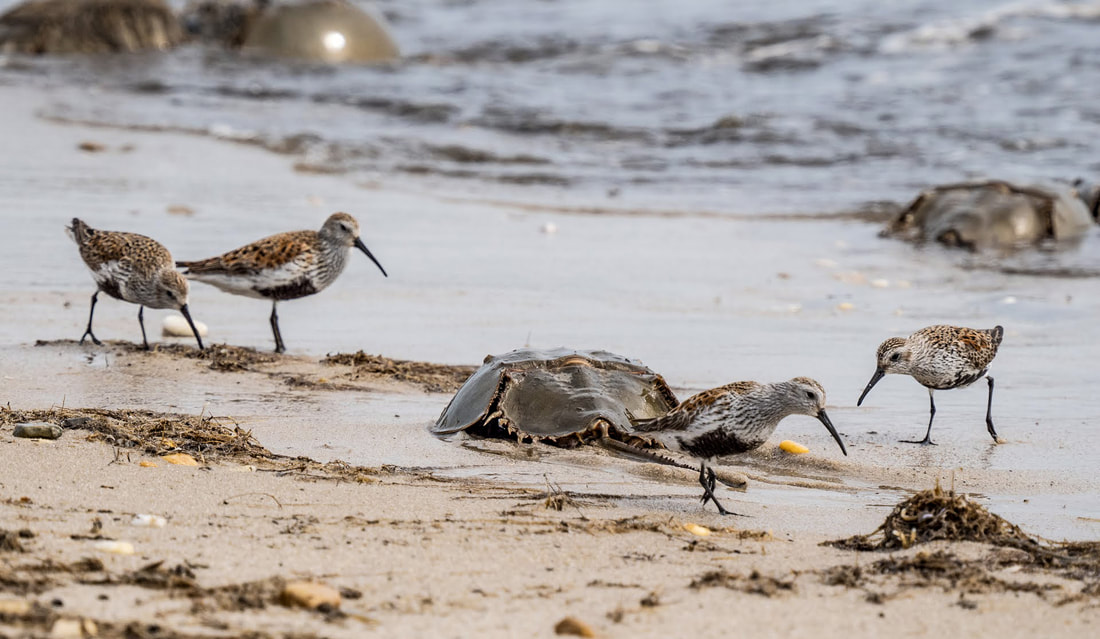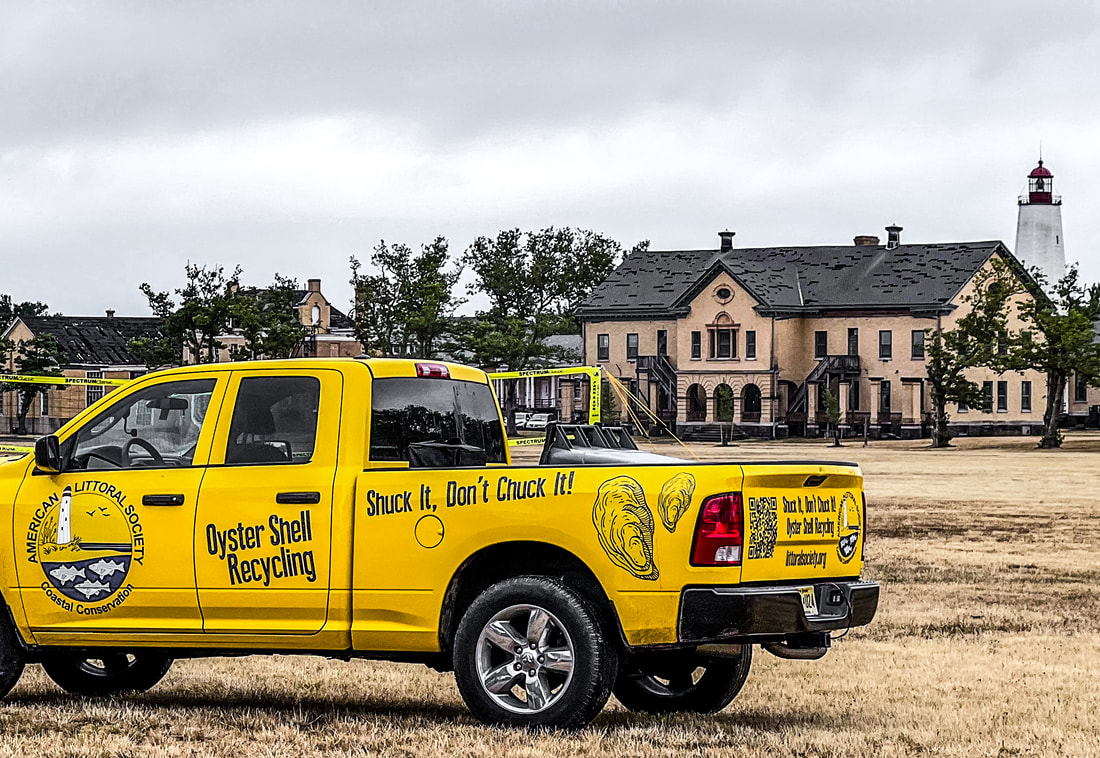|
Join the Littoral Society for extraordinary journeys in 2024!
This year we will be hosting four long-weekend excursions, which will take participants to Virginia's Chincoteague/Assateague islands (during both Spring and Fall migration season), for a whale watch at Cape Ann, MA, an autumn visit to New Jersey's Cape May area, and a winter exploration of the area around Montauk, NY. However, these excursions aren't just about R&R in nice lodgings, they are immersive experiences, blending exploration, education, and a deep connection to the natural wonders that grace our eastern coast. Each will be led by experienced naturalists who can offer insightful information about the ecosystems and wildlife at each destination. They will lead you on walks along sandy shores and sand dunes, bring you to the best spots for birdwatching, provide an opportunity for seeing marine mammals whales and seals, and much more. Spaces are limited, so don't miss the opportunity to be part of these unforgettable coastal adventures. Pack your sense of wonder and join us as we explore these natural gems. We will also be offering transport services to commuters that do not have their own vehicle to travel to some of the destinations with us. Get more information and register on our website: This winter, the American Littoral Society piloted new Seal & Winter Waterfowl Field Trips for schools and homeschool groups.
The Society hosts public Seal & Winter Waterfowl Walks to provide people the opportunity to learn about and observe seasonal wildlife on Sandy Hook from January through March. This year, Education Director Michelle Rebilas and Education Coordinator Audrey Litto expanded this popular program to include an enriching field trip opportunity for K-12 students. Sandy Hook is home to an amazing amount of wildlife, even in the winter! People come from all around New Jersey and beyond to observe and snap pictures of harbor seals that haul-out right by the Chapel. Sandy Hook also provides habitat for a variety of winter waterfowl including the American black duck, bufflehead, red breasted merganser, and everyone’s favorite: the Canada goose. Our Seal & Winter Waterfowl Field Trip is a great way for students to learn about common identifying features and behavioral traits of winter wildlife and get to see them in person. As the days grow longer and the warmth of spring envelopes the coastline, we're excited to announce the return of the American Littoral Society's "Close Encounters with the Coast" field trips.
Set to kick off in May and run through September, these day trips for school age groups use nature as a classroom in which students can engage, experiment, and explore our local coastal and marine environments. A Close Encounters with the Coast Field Trip is the perfect way for students of all ages to explore beach habitats and observe wildlife up-close alongside Littoral Society educators. An interactive, hands-on field trip connects students to the coast in a way they will never forget. Our Close Encounters with the Coast Field Trip is ideal for schools, homeschool groups, scout troops, and private and municipal camps/recreation groups. The Society is committed to providing students with an enriching and exciting experience, so we can work with you to design the perfect program that meets your needs and age group. As the American Littoral Society Fish Tagging Program approaches its 1 millionth tagged fish, we decided it was time to try something new in 2024: dart tags! These tags are a great improvement, not only to the anglers who will be using them, but to the fish that they will be tagging.
As many of our taggers know, the Tagging Program has been using two types of tags for many years: spaghetti and lock-on tags. Both of these tags have served our program well – having been used on most of the nearly 980,000 fish our members have tagged since the program began in 1965. But one of the biggest downsides is that the tag has to go all the way through the fish, before being tied or locked by the angler. While these tags have been used for many years by the Fish Tagging Program, we’ve decided it’s time to try something new to us. Dart tags are not new tech for fish tagging, but they have become more common recently because they are easier for the user and the fish. Dart tags are shorter than either of the other two tag types and got their name from the plastic barb that protrudes from one end. The American Littoral Society has joined more than 20 partners — led by the Center for Biological Diversity, and including the Humane Society and the American Bird Conservancy — to petition the National Oceanic and Atmospheric Administration (NOAA) to list the horseshoe crab under the Endangered Species Act (ESA).
The effort to have horseshoe crabs declared an endangered species is prompted by the ongoing crash of horseshoe crab populations, which is the result of of overharvesting and habitat loss, as well as the importance the crabs play in an intricate web of life that encompasses fish and other aquatic species, along with migratory shorebirds that rely on the crabs' eggs to fuel their journeys. "Despite habitat restoration work and extensive advocacy on our part, which has included a successful campaign in the early 1990s for a New Jersey moratorium on harvesting horseshoe crabs, as well as having Red Knots listed as threatened under the Endangered Species Act in 2014, the horseshoe crab population has not recovered from the extensive damage done by overharvesting in the 1990's," said Tim Dillingham, Executive Director of the American Littoral Society. "The crabs also face the ongoing challenge from efforts by the Atlantic States Marine Fisheries Commission to increase the allowable harvest, which further erodes our confidence that the current governmental management priorities will aid the recovery of the crabs or the birds." “We’re wiping out one of the world’s oldest and toughest creatures,” said Will Harlan, a senior scientist at the Center for Biological Diversity. “These living fossils urgently need Endangered Species Act protection. Horseshoe crabs have saved countless human lives, and now we should return the favor.” While many things slow down during the winter months, the American Littoral Society's "Shuck It, Don't Chuck It!" (SIDCI) Shell Recycling Program doesn’t go into hibernation. In fact, program staff are already doing the leg work for expanding the initiative, which is aimed at helping re-oyster New Jersey’s waters!
Those efforts include setting up a new series of Sip N’ Shuck events, with the next one coming up at the end of February. With the colder season there is a natural slowdown in local seafood consumption, which affects the number of shells we collect. However, this seasonal dip allows time for assessing and enhancing the SIDCI program. Program staff have been hard at work, planning improvements we think will make 2024 a standout year. A highlight of the revamped program is an expanded schedule of our popular "Sip N Shuck" events. These gatherings at local restaurants will be held regularly until at least June. |
Archives
July 2024
Categories
All
|

